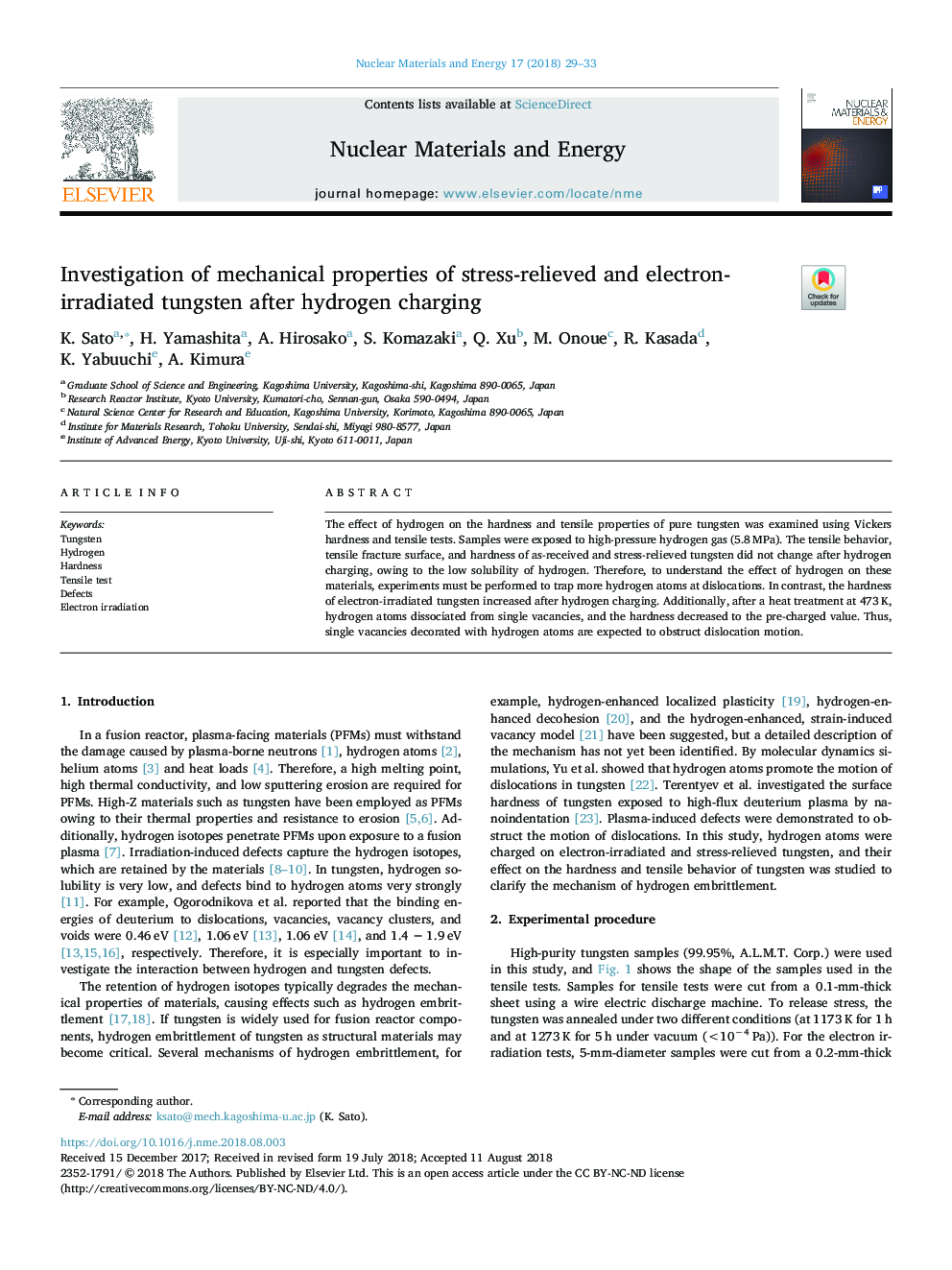| Article ID | Journal | Published Year | Pages | File Type |
|---|---|---|---|---|
| 9953540 | Nuclear Materials and Energy | 2018 | 5 Pages |
Abstract
The effect of hydrogen on the hardness and tensile properties of pure tungsten was examined using Vickers hardness and tensile tests. Samples were exposed to high-pressure hydrogen gas (5.8â¯MPa). The tensile behavior, tensile fracture surface, and hardness of as-received and stress-relieved tungsten did not change after hydrogen charging, owing to the low solubility of hydrogen. Therefore, to understand the effect of hydrogen on these materials, experiments must be performed to trap more hydrogen atoms at dislocations. In contrast, the hardness of electron-irradiated tungsten increased after hydrogen charging. Additionally, after a heat treatment at 473â¯K, hydrogen atoms dissociated from single vacancies, and the hardness decreased to the pre-charged value. Thus, single vacancies decorated with hydrogen atoms are expected to obstruct dislocation motion.
Related Topics
Physical Sciences and Engineering
Energy
Nuclear Energy and Engineering
Authors
K. Sato, H. Yamashita, A. Hirosako, S. Komazaki, Q. Xu, M. Onoue, R. Kasada, K. Yabuuchi, A. Kimura,
